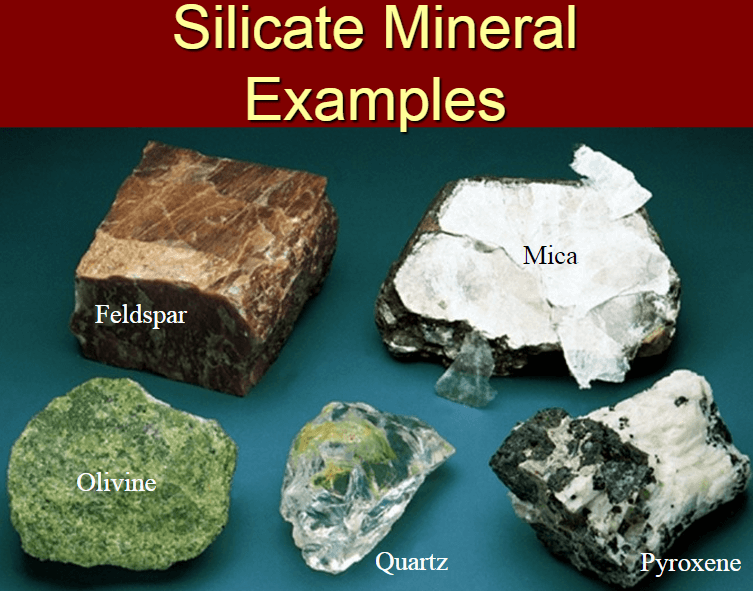They are the largest and most important class of minerals and make up approximately 90 percent of the earth s crust.
What 3 major silicate minerals can be found in granite.
Is granite a metallic mineral or non metallic.
Which minerals are found in the igneous rocks gabbro and basalt.
In the following table record the physical properties of each unknown and use the mineral identification tables to identify the specimens.
It is a type of phyllosilicate exhibiting a two dimensional sheet or layer structure.
D the number of cleavage directions present.
The minor essential minerals of granite may include muscovite biotite amphibole or pyroxene.
1 precipitation directly from an aqueous water solution with a temperature change 2 crystallization from a magma with a temperature change and 3 biological precipitation by the action of organisms.
They are present in granite in differing amounts so all granite doesn t look the same.
Among the principal rock forming minerals micas are found in all three major rock varieties igneous sedimentary and metamorphic.
Double chain silicates called amphiboles host a wider variety of cations including fe 2 mg 2 ca 2 al 3 and na and have a wide variety of colors.
Silicate minerals are rock forming minerals made up of silicate groups.
Potassium feldspar k spar endmember k al si 3 o 8 albite endmember na alsi 3 o 8 anorthite endmember ca al 2 si 2 o 8.
Silicate minerals identification you will be given examples of each of the rock forming silicates mentioned on page 1.
Hard soft and medium are the three primary classes.
On earth a wide variety of silicate minerals.
B chemistry specifically the anions within the chemical formula.
Which element combines with silicon to form the tetrahedral unit of structure of the silicate minerals.
Rocks containing less than 20 percent quartz are almost never named granite and rocks containing more than 20 percent by volume of dark or ferromagnesian minerals are also seldom called granite.
The most common amphibole is hornblende a black mineral found in igneous rocks like granite and andesite see figures 4b and 4c.
Which mineral can be found in granite andesite gneiss and hornfels.
Compositions of major elements in common feldspars can be expressed in terms of three endmembers.
3 2 1 precipitation from aqueous solution.
Note that there may be more than one variety of the same mineral name.
Mica any of a group of hydrous potassium aluminum silicate minerals.
Three main ways this occurs in nature are.
In mineralogy silica silicon dioxide sio 2 is usually considered a silicate mineral.
Minerals are grouped into mineral classes primarily on a basis of a chemistry specifically the cations within the chemical formula.
3 2 formation of minerals.
Contact metamorphism changed sandstone and shale into.










